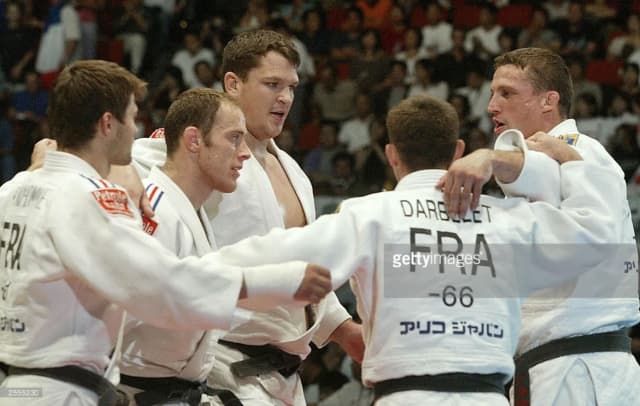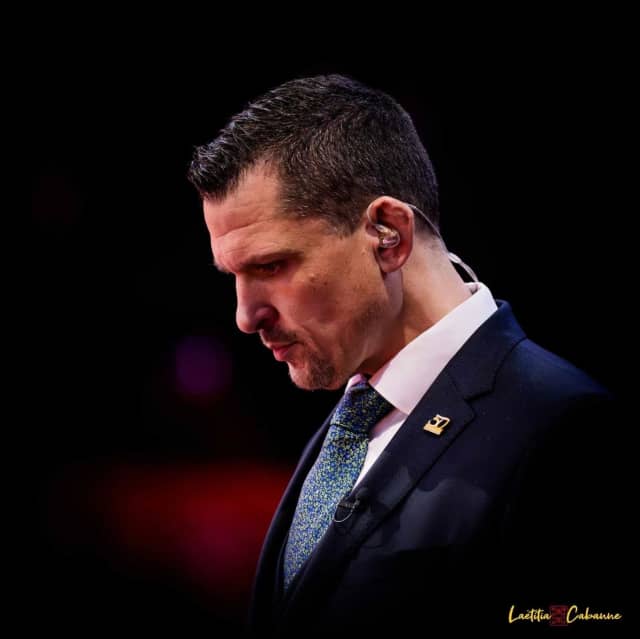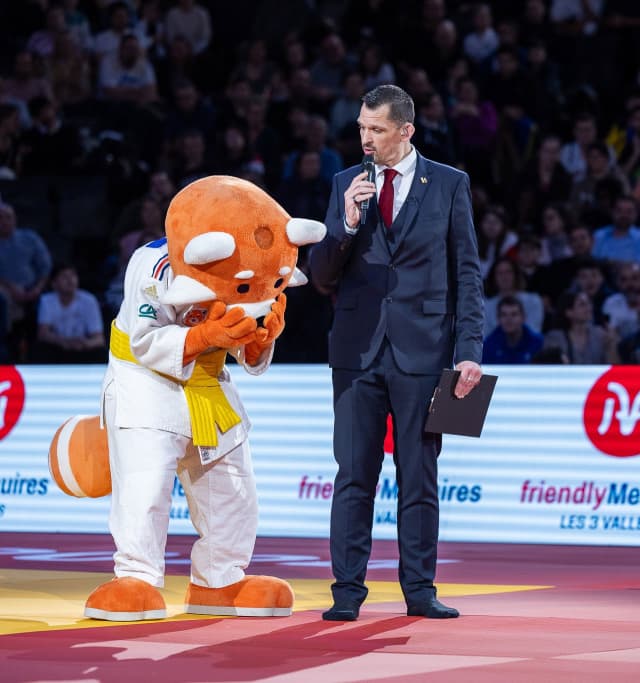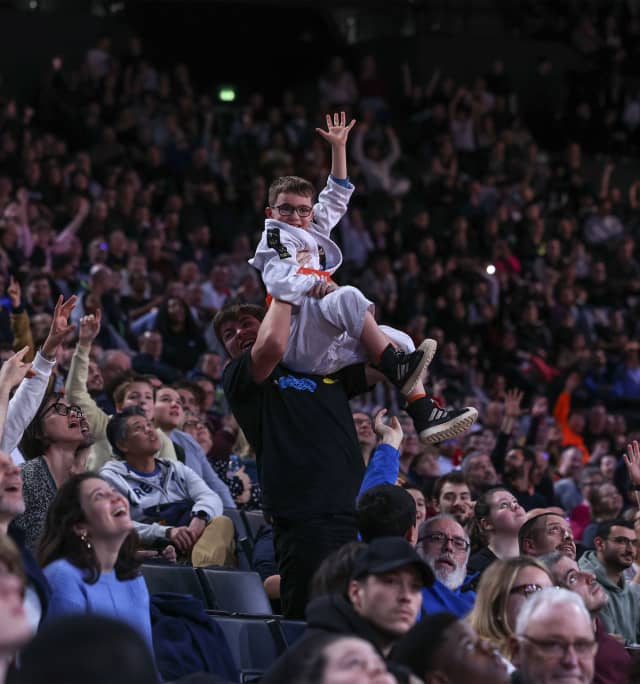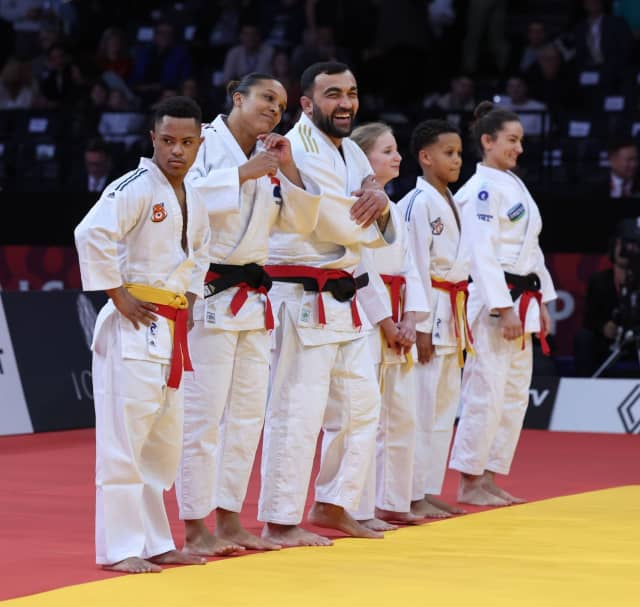As for his Olympic dream, he unfortunately did not manage to make it come true in sporting terms but that doesn't matter, he can now live his dream awake in his other commitments. He recently responded to an interview with Anthony Diao where he takes stock of his life as a judoka and what the Olympic Games represent.
Frédéric 'Fred' Lecanu was born on 2nd April 1979 in Harfleur, Seine-Maritime, Normandy. If we mention David Douillet (born in 1969) and Teddy Riner (1989), you can immediately place Fred in the middle of these two immense champions who have monopolised most of the world and Olympic titles of the last decades. Finding yourself at the intersection of these giants of sport is not an easy thing. Places are expensive.
"If you look back at the Barcelona Games, in the heavyweights, the results are clear. David Douillet, a starter in 1992, 1996 and 2000, won three medals including two titles, flag bearer and Olympic champion in the process. A legend? Teddy Riner? 2008, 2012, 2016, 2021: four individual medals, two titles. He has a mixed team Olympic title and he too has been flag bearer and Olympic champion a few days later."
Finding himself between the two was "not even a window. It was a skylight! Beaten in February of that year at the Paris Grand Slam in the first round by an Egyptian, Islam El Shehaby, who was then unknown, it was Matthieu Bataille who was selected for the Games." Today, Matthieu Bataille is back as an international referee. He will also be in Paris this summer on the tatami to referee the Olympic tournament. This was really a golden generation.
Swallowing the pill of not being selected for the Games was not easy but, "I always start from the principle that when you win, you don't leave room for debate. The competition? You're either there or you're not there. That's it. I had my chance. My opportunities. My experience. My story.
I don't think we should feel too bad about it because we mustn't fall into divine injustice! Why them and not me? Because they were better in that context and that's it. Projecting yourself into another context makes no sense.
From the moment you give everything, and really everything, there is no shame in losing. It's hard to lose, yes, but it's educational, especially if you can use this bad experience to make it a life training.
I appreciate the privilege of having experienced the end of David's career and the beginning of Teddy's. Although I wasn't a champion myself, I rubbed shoulders with two incredible legends that I was able to study from every possible angle: technical, tactical, physical, but also from a societal, marketing, media impact point of view and, above all, I remain convinced that I gave everything I could. Working doesn't guarantee being a champion but not working is being sure not to make it."
After his sports career, not everything was rosy for Fred, "I went through a difficult period, a period that all athletes who have been to the top level experience: the famous little death. In my case, everything suddenly became too hard, too heavy, too painful. Repetition is a guarantee of performance but when this quest for performance no longer makes sense, repetition then becomes unbearable. So I took my courage in both hands, I fought against my representations and my fears. I weighed 160 kg. Today I am at a stabilised weight of 110 kilos and am in great shape!"
Fred is in great shape for sure. You only have to watch him take immense pleasure in making Bercy roar with pleasure during the grand slam, as was the case last February on the occasion of the mixed team event between the children and the champions organised by the International Judo Federation. Today, he is therefore trying to give back to judo what the latter gave him. "I have never stopped trying to do it and in all possible forms."
All these years spent in contact with high-level sport have made Fred somewhat of a philosopher, "What is the point of competition, ultimately? Well, to know yourself. Really. To face your fears. To decipher your limits and, above all, to develop strategies to improve yourself and find solutions. If we commit ourselves fully, sincerely and in a real constructed project, the quest for results brings as much as the medal itself. And more, I am convinced that this modelling is exportable to other sectors, to other people. If the performance model exists, it is not only for the sport.
Competition and high level are accelerators. It multiplies information, emotions, interactions. Judo is rich in symbols that allow us to better understand life. The world of high-level sport is formidable and the experience can be painful but no more than life in general, I imagine."
With his winding journey through the world and within the judo family, Fred will be a seasoned, professional and human commentator this summer in Paris. Although he did not qualify for the Olympics, he is nonetheless a lover of games and sport. Isn't that ultimately the key to success? Giving your all, trying everything, while respecting the rules and principles of judo, and having the feeling of a job well done. The goal is beautiful of course, the path is just as beautiful, if not more so.
Interview by Anthony Diao (Full French version: CLICK HERE - English version: CLICK HERE)

